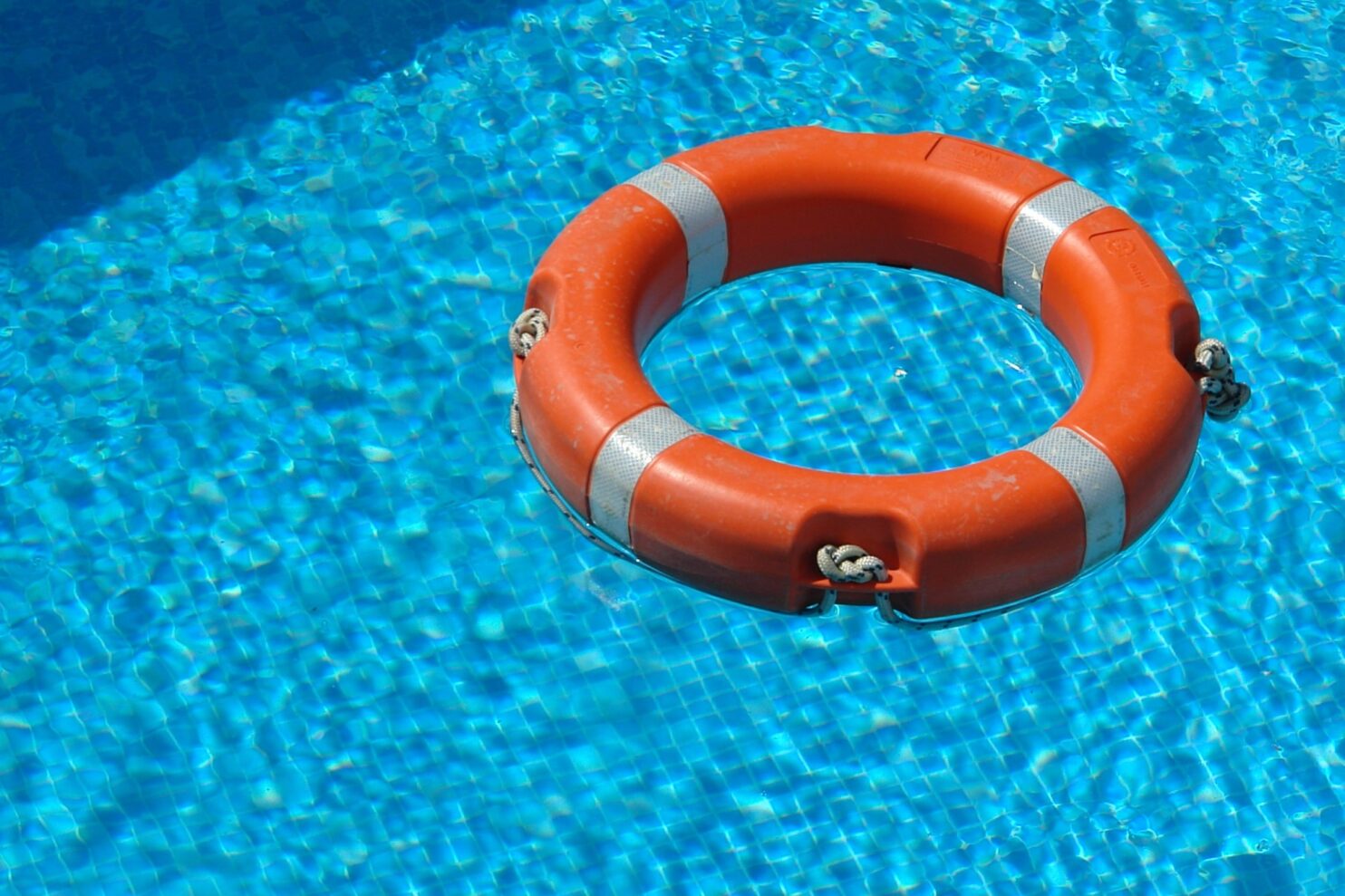Have you ever spent time in a pool and then noticed you have red, itchy eyes or irritated skin? It’s a common occurrence.
Most people think that chlorine in swimming pool water is the cause of these reactions. But that’s not usually the problem.
The truth is pool super chlorination is one of the best solutions for irritated eyes and skin discomfort. So, if chlorine isn’t the problem, what is?
Let’s take a look at some top causes of eye irritation after swimming.
PH Imbalance
One big cause of eye irritation after swimming is improper pH balance in the pool. A pH balance lower than 7.4 is too low and must be raised.
When the pH balance exceeds 7.8, it’s too high. A pH balance of 7.8 is ideal and will help prevent the growth of algae in the pool.
The human body has a narrow comfort range for a pH of 7.4 to 7.8. Levels higher or lower than this can lead to red, itchy eyes and skin.
If you can keep your pool’s pH level the same as that of your eyes, you can keep eye and skin irritation to a minimum. Disinfecting the pool at this level is also helpful for avoiding these issues.
Chloramine
If you’re noticing your pool water has a smell along with experiencing eye and skin irritation, you probably have chloramines. This occurs when the chlorine you put in your pool bonds with nitrogen and ammonia.
This is also called combined chlorine. This combination causes chlorine to lose its sanitizing power. This leads to eye, skin, and hair irritation for swimmers.
Chloramine interferes with the effectiveness of chlorine in the pool and allows bacteria and algae to grow more freely. Chloramines give off a strong bleach-like odor and are 60 to 80 times less effective than free chlorine molecules.
You can test for chloramines with a DPD test kit. The only way to get rid of chloramine is to shock or super chlorinate the pool.
This helps raise the chlorine levels, causing the chloramine to break down. If you increase the chlorine level of the pool ten times more than normal, you will reach breakpoint chlorination.
At this level, the chloramine breaks down and the ammonia in the pool water burns out.
Total Dissolved Solids (TDS)
Another reason your pool water may lead to eye and skin problems is due to high levels of dissolved solids. The normal level of TDS in pool water ranges from a few hundred ppm to 3,000 ppm.
If TDS is greater than 3,000 ppm, the water gets cloudy and burns the eyes. High TDS makes it hard to maintain a proper pH level as well.
This increases the chance of chloramine forming in your pool. If you have trouble with eye and skin irritation after swimming, scheduling professional pool maintenance is a good idea.
If you or your family are spending hours in the pool, you want it to be a safe, enjoyable experience.
Urine
The CDC cites urine as another cause of eye irritation for swimmers. Urine in pool water binds with chlorine.
This can cause a chemical reaction that’s irritating to the body. Peeing in the pool may be common, especially for young children. But it’s a good idea to teach your kids to get out of the pool and head to the bathroom when they need to go.
Peeing in the pool reacts with chlorine and other pool chemicals. This causes an irritant that can lead to red, itchy, and burning eyes for some people.
Kids and Irritated Eyes After Swimming
Are your kids complaining of red, irritated eyes after swimming? Are you noticing that their skin looks red or dry?
There are some things you can do to offer some relief. First, simply rinse their eyes with cool water after they swim.
This helps soothe their eyes and rinse away any potential irritants. You can also use some saline solution or a cool compress to soothe their eye irritation.
Have them shower or take a bath after swimming and use a soothing, fragrance-free moisturizer on their skin.
Wearing goggles in the pool is a good way to prevent eye issues. If you’re taking good care of your pool but still notice your kids are dealing with eye and skin irritation, schedule an appointment with a pool maintenance pro.
The Solution
All of these issues involve swimming pool water chemistry. Here are some things you can do to protect the water chemistry of your pool.
- Check the pH levels of the water
- Remove chloramines from the pool
- Schedule regular swimming pool water maintenance
- Switch to saltwater
- Avoid peeing in the pool
- Change baby’s swim diapers regularly
- Shower before jumping into the pool
- Wear swim goggles
Learning to care for your pool year-round is important. You don’t want to ignore your pool during the winter or times you’re not using the pool.
If you’re unsure how to care for your pool properly, schedule regular pool cleanings and service with a reputable pool company.
Keep Your Swimming Pool Water Clean
Swimming and playing in the pool should be a fun, enjoyable experience. It’s not as fun when you have to deal with itchy, red eyes.
There are many reasons your eyes may be irritated, but too much chlorine in your swimming pool water isn’t the culprit. The goal is to keep the pH levels and swimming pool water balance in check.
Are you interested in learning how to care for pools or how to become a certified pool and spa operator (CPO)? Poolcerts can help!
Take a look at our convenient CPO certification online course today.

